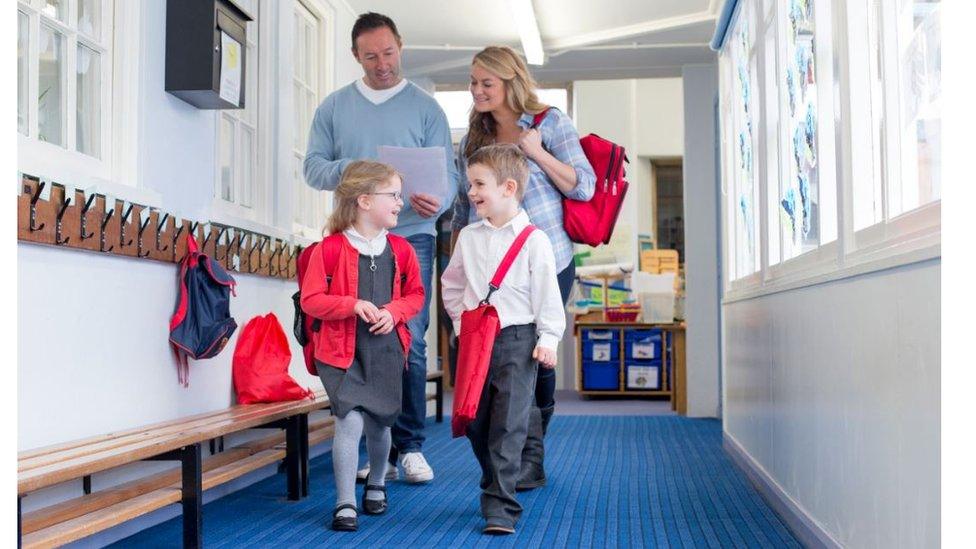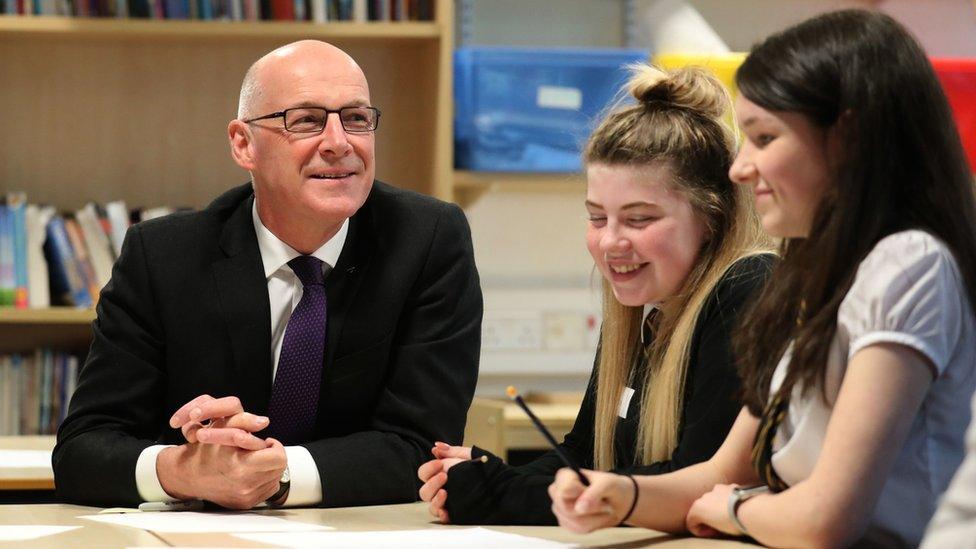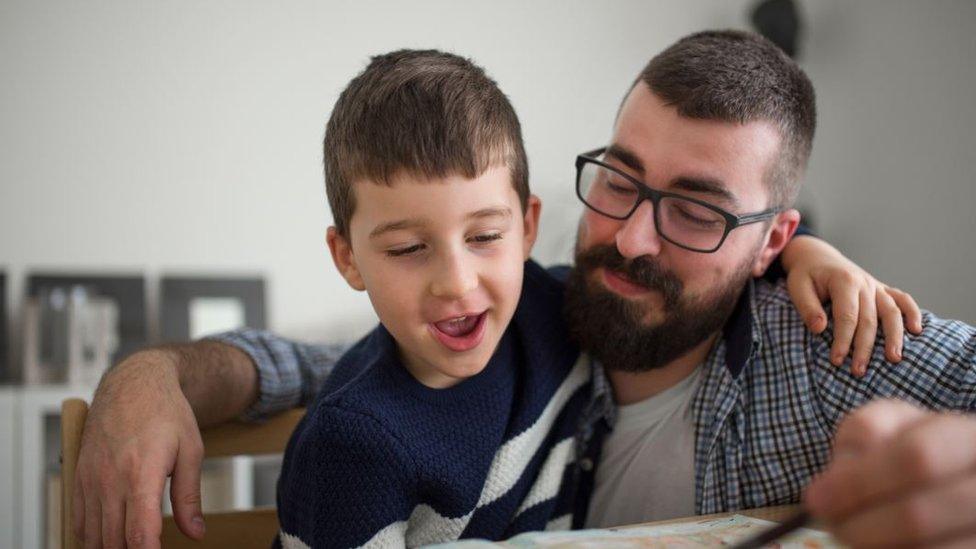How schools should harness parent power in SNP's 50-point action plan
- Published

Scotland has its first ever plan to fully involve parents in their children's education.
A national action plan has been set to encourage parents' involvement and improve links between school and home.
The vision, with more than 50 action points, will be backed up with £350,000 from the Scottish government to help address barriers some parents may face.
Deputy First Minister John Swinney hopes it will help reduce the attainment gap.
The document, called "Learning together", external sets out a vision for parental engagement for the next three years and promises to "raise the bar yet higher", by supporting every parent and family on their "educational journey".

John Swinney plans to improve links between home and school in the next three years
Mr Swinney said: "This plan is based on the guiding aim of getting it right for every child.
"It is informed by the central role of the family, whatever form that may take. The theme that lies at the heart of this plan is relationships - relationships based on trust, mutual respect and collaboration."
The plan has 13 goals and 52 action points.
The BBC Scotland news website looks at the top eight ways parents will be central to change.
1. Parents help decide how to spend the money
Schools will continue to receive Pupil Equity Funding and parents will help schools decide how to spend this extra cash. The Attainment Scotland Fund will also continue to offer schools opportunities to arrange learning activities appropriate to their pupils.
2. Listening to parents
Schools should ensure a culture and approach that is welcoming and supportive and challenge any behaviours likely to alienate or intimidate parents.
School handbooks will be developed and made accessible in relevant languages.
Parents will be encouraged to ask questions about education and about their children.
And the Scottish government will work with national parent organisations to develop a "policy maker's toolkit on involving parents" by the end of June 2019.
3. Families that learn together...
The Attainment Scotland Fund and Pupil Equity Funding will continue funding schools from 2018 onwards.
Schools will be able to tap into these funds to arrange family learning programmes and to fund joint activity with early learning and childcare settings.
Head teachers say initiatives engaging families lead to improvements in the relationships between the school and parents.

Dads may not be comfortable in the school environment but steps are being taken to be inclusive
One North Ayrshire school used a new initiative to raise the profile of languages and to engage families with their children in learning French.
The seven-week project "Wee Famille", in Springside Primary in Irvine invited families into school one afternoon each week to learn French with their child. Before each session, parents and carers had a cuppa and a croissant with the Family Learning team.
4. 'Dad-friendly schools'
Barriers limiting parents' involvement and engagement will be tackled.
Under-represented groups, such as fathers, will be encouraged to get involved. Male carers were found to feel less comfortable in the school setting.
Mum-centric communication from schools and social inequality were all found to be barriers in the study.
The Scottish government said it would work with parent groups to ensure national education policy documents, strategies and guidance documents are fully "parent friendly".
A best practice example was Prestonpans Infant School which helped create the East Lothian Father Friendly Schools Project.
5. Positive involvement of unique and minority groups
Additional support will be provided for armed service families, fathers, minority ethnic parents, travellers, parents of children with disabilities or additional support needs, separated parents, and sign language users.
The Scottish government has promised to work with parent organisations and relevant agencies to include groups with specific needs.
6. Parents in power

Parents will be consulted by schools when it comes to the development of improvement plans, spending Pupil Equity Funding and other key activities. Parental involvement and engagement strategies should be up-to-date and accessible.
7. Social media and communications
Schools will be encouraged to exploit the opportunities provided by information technology to improve parental involvement and engagement.
Parents will be asked how they wish to be contacted and the government will look at the appropriate use of social media, advising schools on both methods and content, using plain English and parent-friendly-language.
One example being explored is text updates on children's progress which have been shown to have important positive impacts on home/school links.
8. Volunteering

Measures included within the action plan include expanding opportunities for parents to volunteer in schools, reviewing statutory guidelines on parental involvement and improving training for parent councils.
In early 2019 the Scottish government will convene a national working group to explore practical, effective ways to make it easier for parents, families and wider communities to volunteer in early learning and childcare settings or schools.
- Published22 May 2018

- Published15 August 2018
